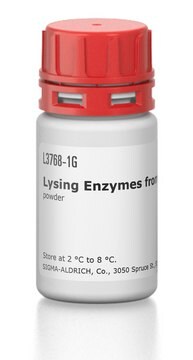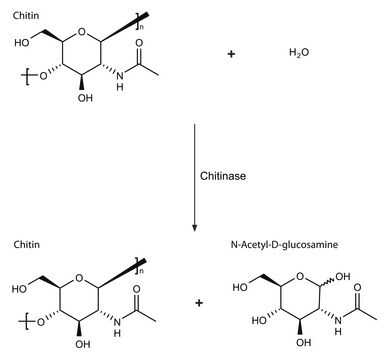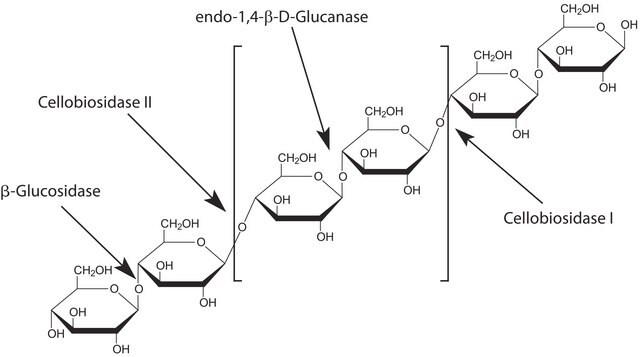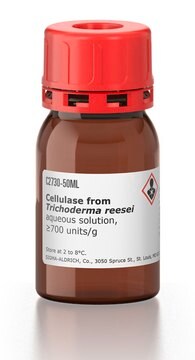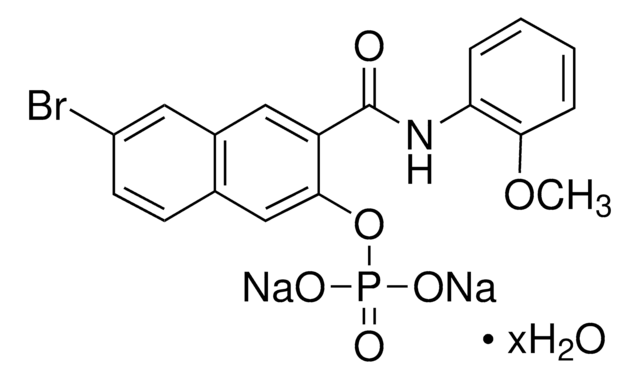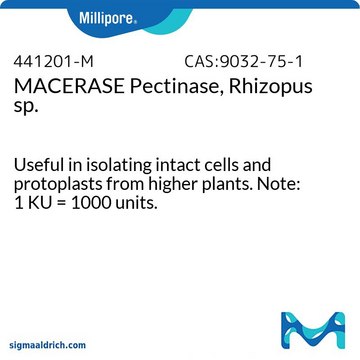D9515
Driselase™ from Basidiomycetes sp.
powder, Protein ≥10 % by biuret
Synonym(s):
cellulase, laminarinase, xylanase
Sign Into View Organizational & Contract Pricing
All Photos(8)
About This Item
Recommended Products
conjugate
conjugate (Glucosaminoglycan)
Quality Level
form
powder
composition
Protein, ≥10% biuret
greener alternative product characteristics
Waste Prevention
Design for Energy Efficiency
Learn more about the Principles of Green Chemistry.
sustainability
Greener Alternative Product
greener alternative category
, Enabling
shipped in
wet ice
storage temp.
−20°C
Looking for similar products? Visit Product Comparison Guide
General description
We are committed to bringing you Greener Alternative Products, which adhere to one or more of The 12 Principles of Greener Chemistry. This product has been enhanced for energy efficiency and waste prevention when used in cellulosic ethanol research. For more information see the article in biofiles and Enzymes for Alternative Energy Research.
Application
Driselase from Basidiomycetes has been used in a study to assess the digestion by fungal glycanases of arabinoxylans with different feruloylated side-chains. Driselase from Basidiomycetes has also been used in a study to investigate the purification, characterization, and mode of action of a rhamnogalacturonan hydrolase.
The enzyme from Sigma has been used as a control while testing the ability of p-coumaroyl esterase to release p-coumaroyl and feruloyl groups from intact cell walls. It has also been used in the protoplast preparation from mycelia during a study to investigate the pathogenicity of Cochliobolus carbonum on Maize.
Biochem/physiol Actions
Driselase is a cell wall degrading enzyme that contains cellulase, hemicellulase, pectinase etc. Therefore, it is very effective in removing plant cell walls to make protoplasts.
Other Notes
Crude powder containing laminarinase, xylanase and cellulase.
View more information on enzymes for complex carbohydrate analysis at www.sigma-aldrich.com/enzymeexplorer
Legal Information
Driselase is a trademark of ASKA Animal Health Co. Ltd.
Signal Word
Danger
Hazard Statements
Precautionary Statements
Hazard Classifications
Resp. Sens. 1
Storage Class Code
11 - Combustible Solids
WGK
WGK 3
Flash Point(F)
Not applicable
Flash Point(C)
Not applicable
Personal Protective Equipment
dust mask type N95 (US), Eyeshields, Gloves
Choose from one of the most recent versions:
Already Own This Product?
Find documentation for the products that you have recently purchased in the Document Library.
Customers Also Viewed
W S Borneman et al.
Applied and environmental microbiology, 57(8), 2337-2344 (1991-08-01)
An extracellular p-coumaroyl esterase produced by the anaerobic fungus Neocallimastix strain MC-2 released p-coumaroyl groups from 0-[5-0-((E)-p-coumaroyl)-alpha-L-arabinofuranosyl]-(1----3)-0-beta -D-xylopyranosyl-(1----4)-D-xylopyranose (PAXX). The esterase was purified 121-fold from culture medium in successive steps involving ultrafiltration column chromatography on S-sepharose and hydroxylapatite, isoelectric focusing
J S Scott-Craig et al.
The Plant cell, 2(12), 1191-1200 (1990-12-01)
A gene (PGN1) encoding extracellular endopolygalacturonase was isolated from the fungal maize pathogen Cochliobolus carbonum race 1. A probe was synthesized by polymerase chain reaction using oligonucleotides based on the endopolygalacturonase amino acid sequence. Genomic and cDNA copies of the
Taras Pasternak et al.
Plant methods, 11, 50-50 (2015-10-31)
Rapid advances in microscopy have boosted research on cell biology. However sample preparation enabling excellent reproducible tissue preservation and cell labeling for in depth microscopic analysis of inner cell layers, tissues and organs still represents a major challenge for immunolocalization
Q Chen et al.
Plant physiology, 94(4), 1820-1829 (1990-12-01)
Treating carrot (Daucus carota L.) suspension culture cells with a mixture of cell wall degrading enzymes, Driselase, resulted in an increase in the percentage of [(3)H]phosphatidylinositol bisphosphate. Analysis of the lipid kinase activities in the isolated plasma membranes after whole
G Wende et al.
Phytochemistry, 45(6), 1123-1129 (1997-07-01)
Alcohol-insoluble residues (AIRs) from Festuca and Zea cell cultures contained 7.4 and 35 nmol esterified ferulate mg-1, respectively. Driselase solubilised 79% of the feruloylated material from both AIRs. Of the feruloyl esters solubilised from Festuca and Zea AIRs, 72 and
Our team of scientists has experience in all areas of research including Life Science, Material Science, Chemical Synthesis, Chromatography, Analytical and many others.
Contact Technical Service
